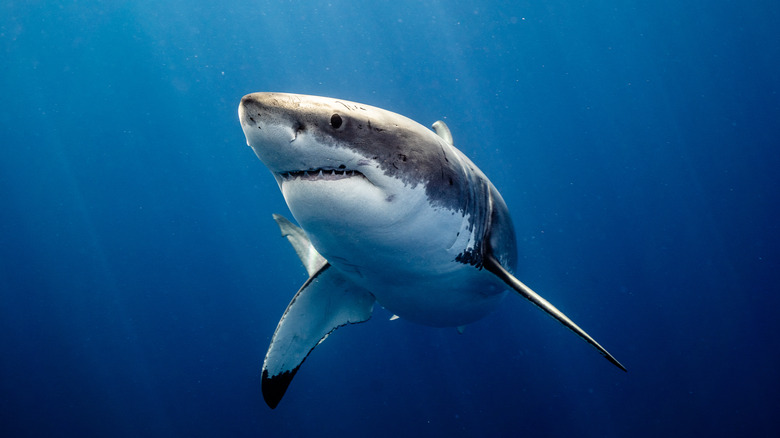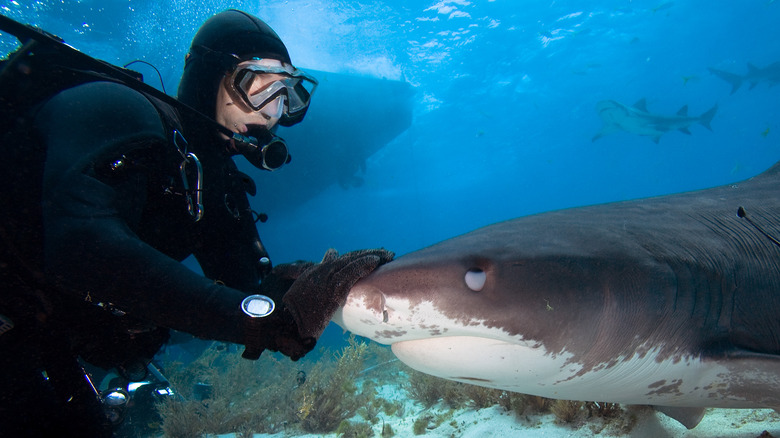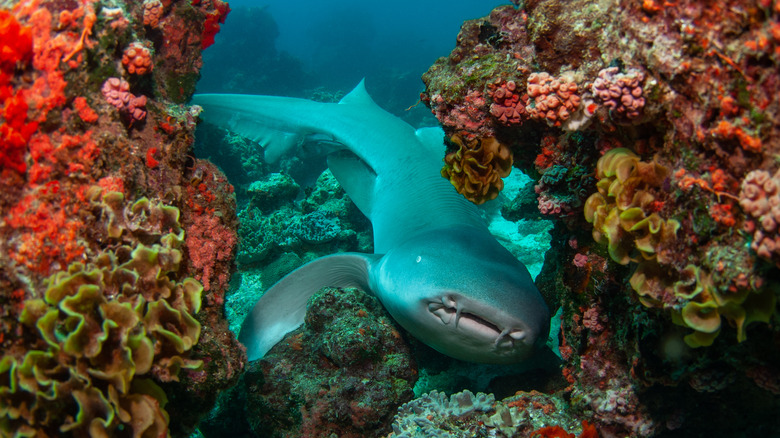Scientists Confirm What We All Suspected About Sharks
Sharks lurk in the depths of the ocean, feeding on fish, crustaceans, marine mammals, and even other sharks. They don't have bones and they even have a "sixth sense" that allows them to track their prey's electric fields up until the moment they bite, according to the World Wildlife Fund (WWF). Breaking out in Hollywood with the classic 1975 film "Jaws," sharks started to be portrayed as menacing beasts eager to tear any object to shreds.
However, one Australian study found the so-called "Jaws Effect" caused humans to think sharks are dangerous to humans, when really it may be the other way around, with human activity contributing to their endangerment (per Study Finds). These creatures have existed for at least 420 million years, meaning they have survived four of the past give mass extinctions and existed before the dinosaurs, per New Scientist. Yet scientists are still discovering new things about the 500 or so shark species that live in our oceans (per WWF).
The oxygen dilemma
To survive in the ocean, sharks need to keep water moving over their gills so that oxygen can enter their body, according to Britannica. This is accomplished by different shark species through various methods. One species pumps water through its mouth and uses its cheek muscles to force it out, while some — like the whitetip reef shark and the lemon shark — can remain completely still, pumping water with special body parts called spiracles, which automatically force water through their gills (via Britannica).
Also, 38 percent of shark species keep their eyes open at all times (via ScienceAlert). Because of this creepy, catatonic state sharks can be found in, it was commonly believed that sharks never sleep, or at least alternated between stages of rest and activity but never fully got a good night's sleep (per ThoughtCo.). However, a recent study clarified the question of whether or not sharks are hitting the hay — er, reef?
Sharks do catch Zs
In a new Australian study, researchers monitored a draughtsboard shark for 24 hours to get to the bottom of the sleep question. We know in humans and other mammals that the role of sleep is to preserve energy, so scientists sought to find out whether this preservation of energy also occurred in the earliest jawed vertebrates. What they found was the shark's oxygen levels decreased substantially across certain periods presumed to be rest, per ScienceAlert. In a prior study, the research team undertaking the same question also found that it took significantly more stimulation to arouse sharks in this resting period than it did for sharks in an awake state (per Journal of Sleep Research). These findings together debunked the myth that sharks don't sleep.
This draughtsboard species of shark is the type that uses face muscles to pump oxygen across their gills, meaning they can stay put for a long time. Now researchers on the team are asking how or if the same holds true for sharks like the great white, which relies on swimming to keep the water flowing through their gills (via ScienceAlert). It could be that they're roaming the ocean floors, in a zombie-like state, asleep. That's a very different picture than the classic great white image that comes to mind from "Jaws."


